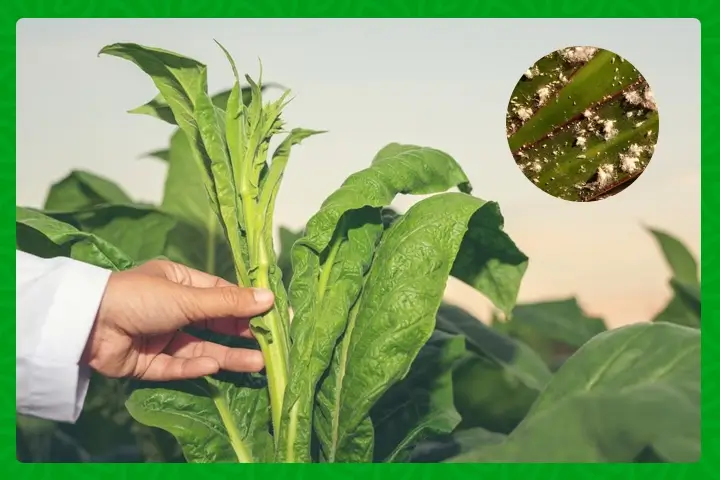
A subtle yet persistent threat has emerged in the heartland of Zimbabwe’s tobacco farms. Mealybugs, the white soft-bodied insect pests, have made their presence known in sporadic incidences across key regions, including Mt Darwin, Shamva, Mhangura, and parts of Manicaland province. As Kutsaga reports, these tiny invaders pose challenges to thriving tobacco crops during the current farming season (2023-24).
Understanding the Enemy: Mealy bugs thrive in hot and dry conditions, predominantly targeting cotton in certain districts of Zimbabwe. However, the latest observations indicate that they have become an incidental pest on tobacco and seed crops, infesting them during periods of water stress. The consequences are dire, as these pests feed by sucking phloem sap from the leaves, causing yellowing, wilting, and drying. Additionally, their excretion of a sticky substance, known as honeydew, leads to the growth of sooty mold, ultimately resulting in reduced biomass and a decline in leaf quality.
A Call to Action – Integrated Pest Management: Kutsaga emphasizes the need for an integrated pest management approach to effectively combat mealy bugs on tobacco farms. Tobacco growers are urged to adhere to recommended cultural practices proven to successfully manage pests and diseases. This includes following ideal crop rotations, implementing agrochemical rotation schemes, and adhering to stipulated planting and sowing dates. The use of systemic active ingredients is highlighted as a key strategy for achieving optimal knockdown effects on sap-sucking insect pests, particularly on tobacco.
Climate Change Resilience: Acknowledging the permanence of climate change, growers are encouraged to be proactive in monitoring their fields regularly. Remaining vigilant and reporting any unfamiliar trends in diseases and pest profiles is crucial in safeguarding the tobacco harvest against unforeseen challenges.
Economic Impact: Tobacco stands as one of Zimbabwe’s top foreign currency earners, second only to gold. As of December 2023, the country has already generated an impressive US$1.2 billion from tobacco exports, surpassing the US$975 million achieved during the corresponding period in 2022. With 233.9 million kilograms of golden leaf exported, the average price per kilogram has risen to US$5.23, reflecting a positive trend compared to the previous year.
As Zimbabwe’s tobacco industry continues to thrive, the battle against mealy bugs becomes a pivotal aspect of ensuring a bountiful harvest and sustaining the nation’s economic growth. By embracing integrated pest management strategies and staying attuned to the evolving challenges brought on by climate change, tobacco growers can fortify their fields and contribute to the continued success of Zimbabwe’s golden leaf exports.
Original article was written Mthandazo Nyoni


















